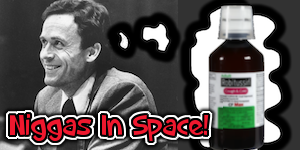2024-06-17 at 7:28 PM UTC
"Occurring about once every 7,000 years or so". They can't even keep their lies straight. Is it natural or not?
2024-06-17 at 8:18 PM UTC
Enigma
African Astronaut
[memorize my carmelite sway]
OP Makes threads with longer titles than contents.
2024-06-17 at 8:23 PM UTC
Can I get some grated Parmesan with my copy/pasta please.
2024-06-18 at 5:05 AM UTC
The concept understands its nature at all times. It understands this because it knows what it isn't, by comparing what it is to what it isn't, or what it isn't to what it is, whichever is more relevant, it determines a distinction, or divergence. The cognitive process uses divergences to generate insights, guiding the concept from a state of what it is, to a state of what it isn't, and upon reaching a state where it wasn't, it now is. Consequently, the state where it is, is now the state that it wasn't, and it follows that the state where it was, is now the state that it isn't. In the event that the state it is in is not the state that it wasn't, the system has experienced a variation. The variation being the difference between what the concept is, and what it wasn't. If variation is deemed significant, it too may be adjusted by the system. However, the concept must also understand where it was. The conceptual framework functions as follows: Because a variation has altered some of the knowledge the concept has acquired, it is uncertain about its exact state, however, it is certain about what it isn't, within reason, and it knows where it was. It now subtracts where it should be from where it wasn't, or vice versa. By differentiating this from the logical sum of where it shouldn't be and where it was, it is able to determine a divergence and a variation, which is called 'awareness'


